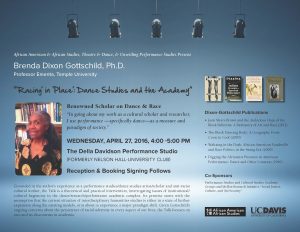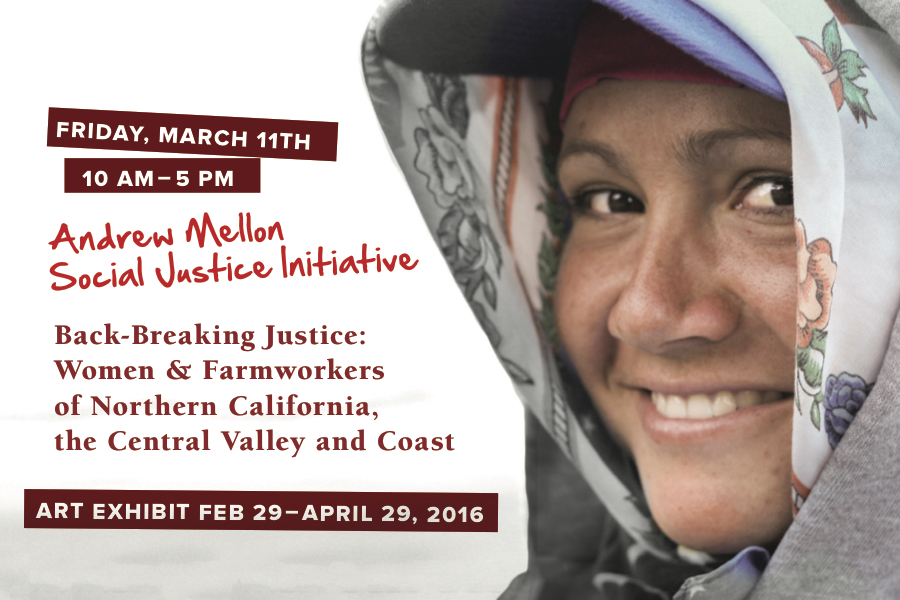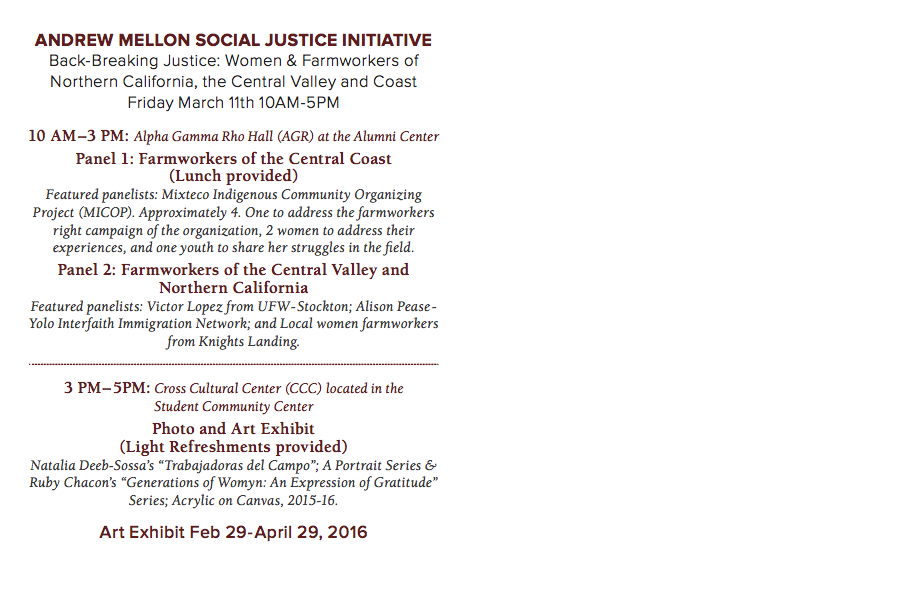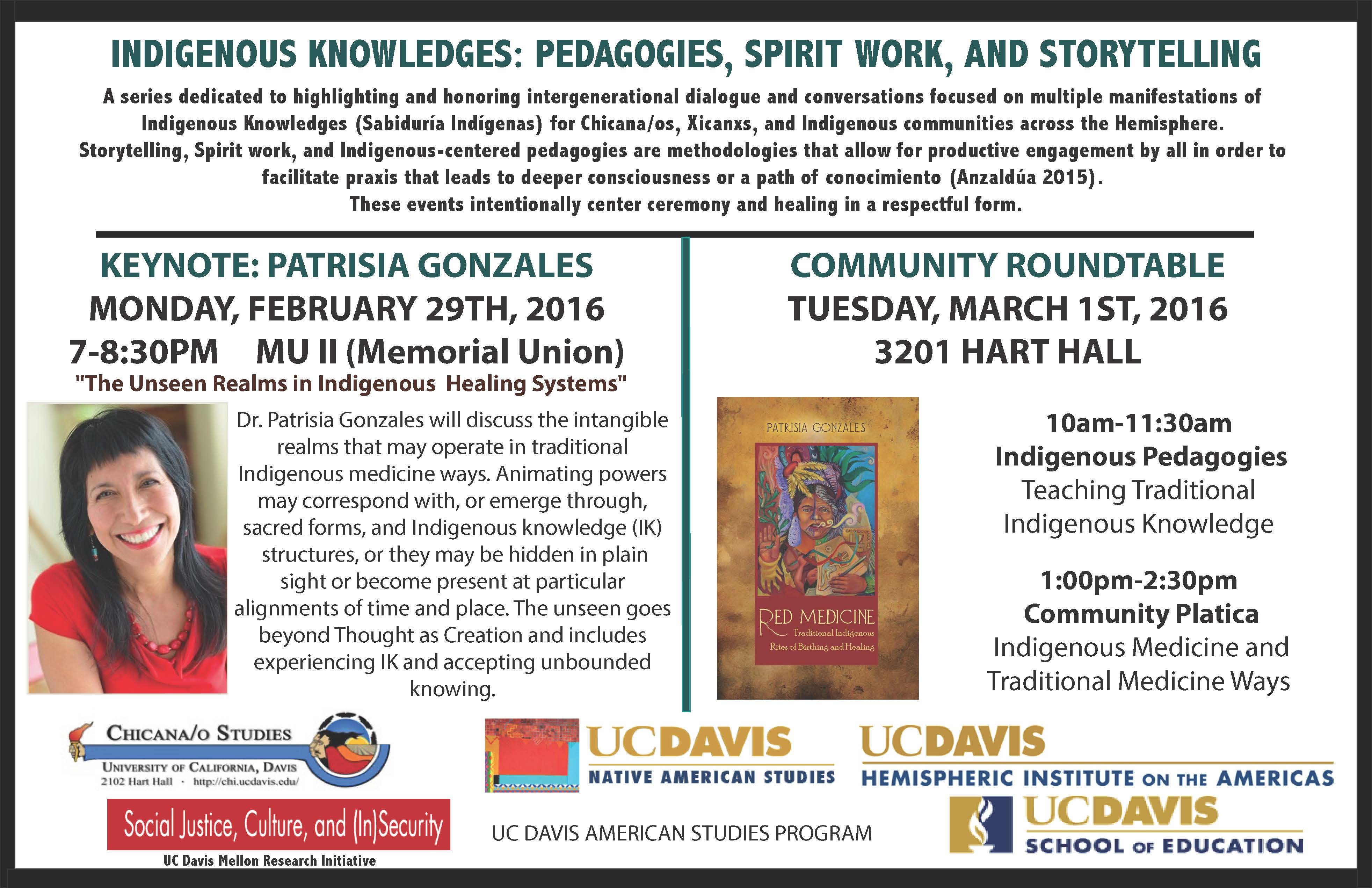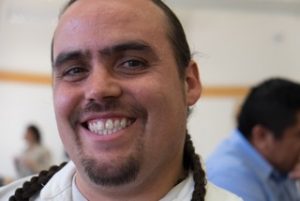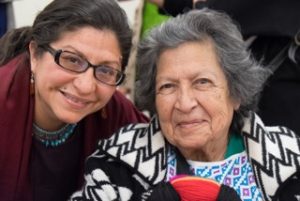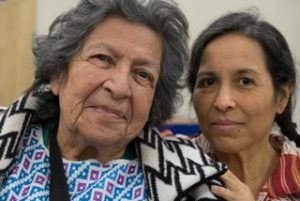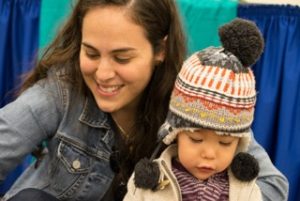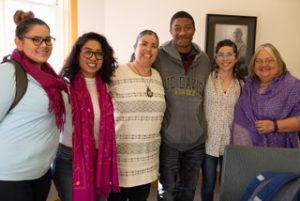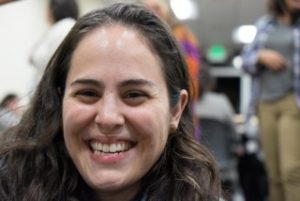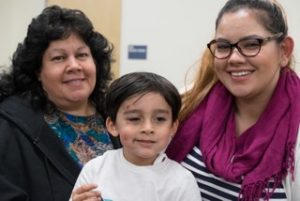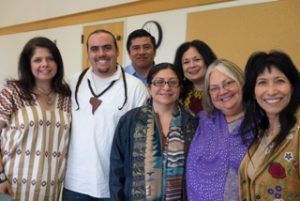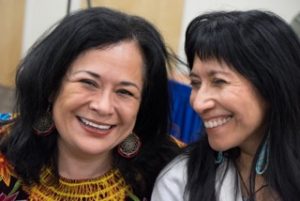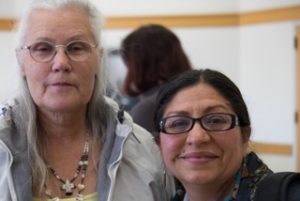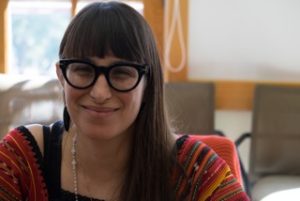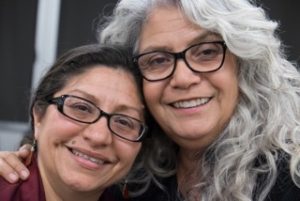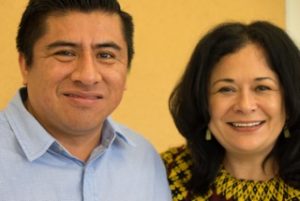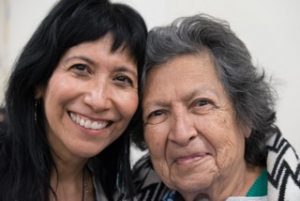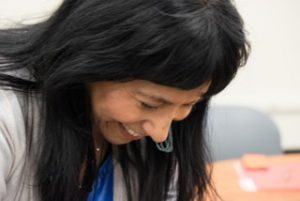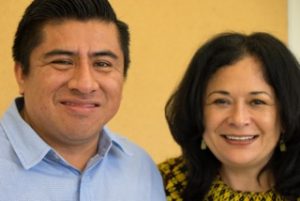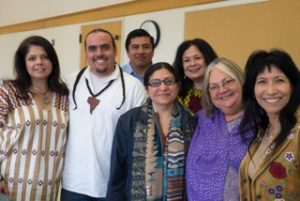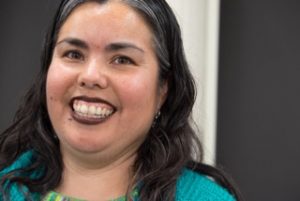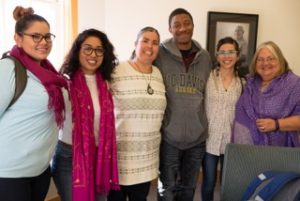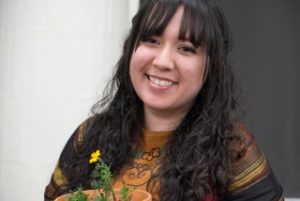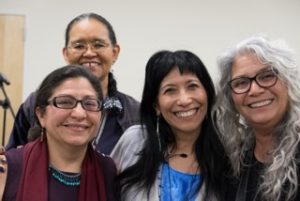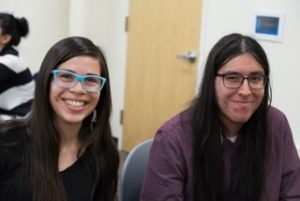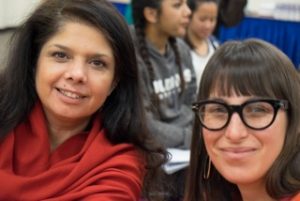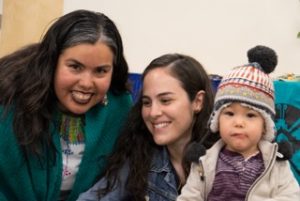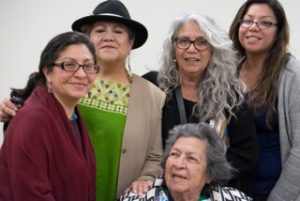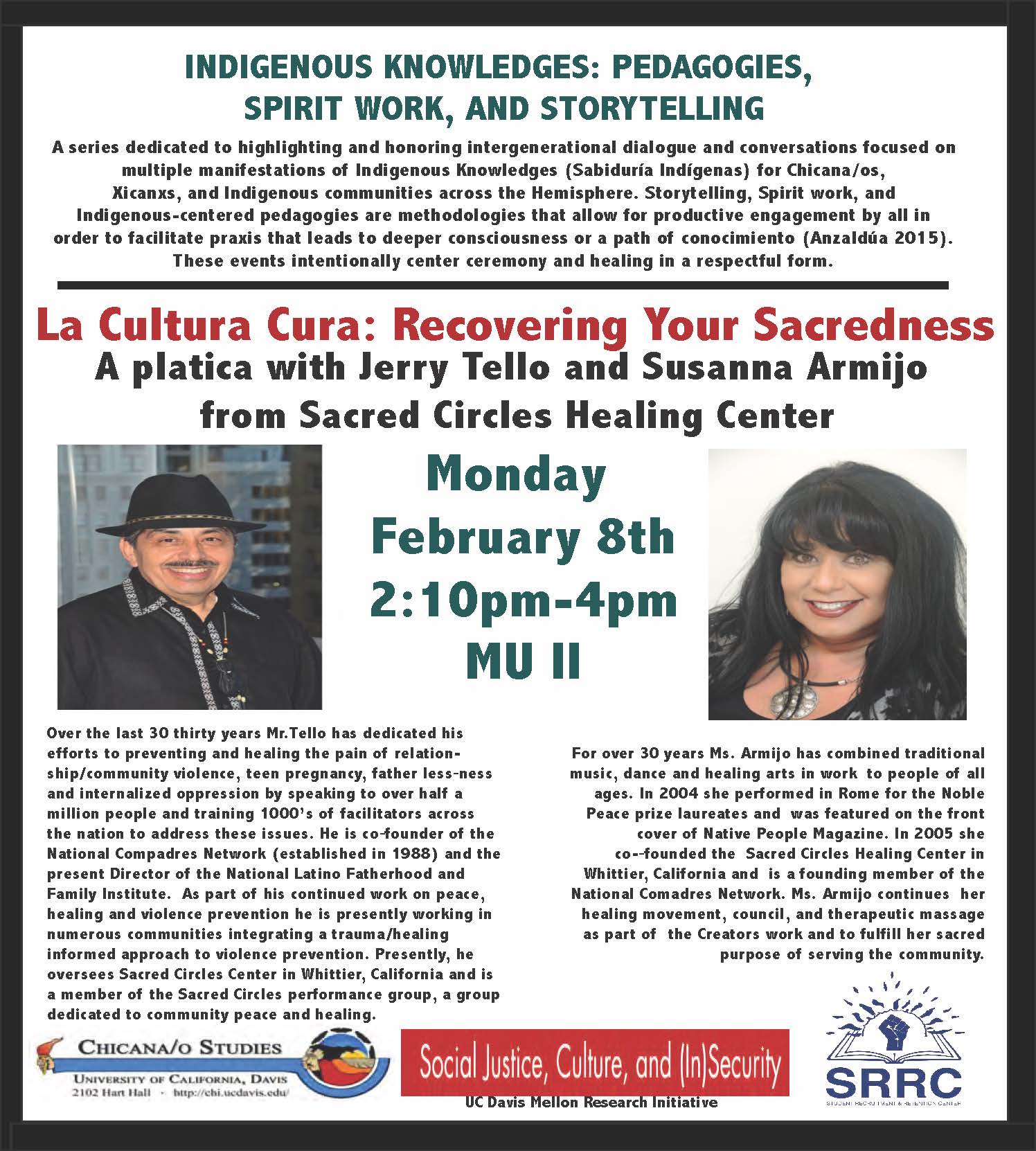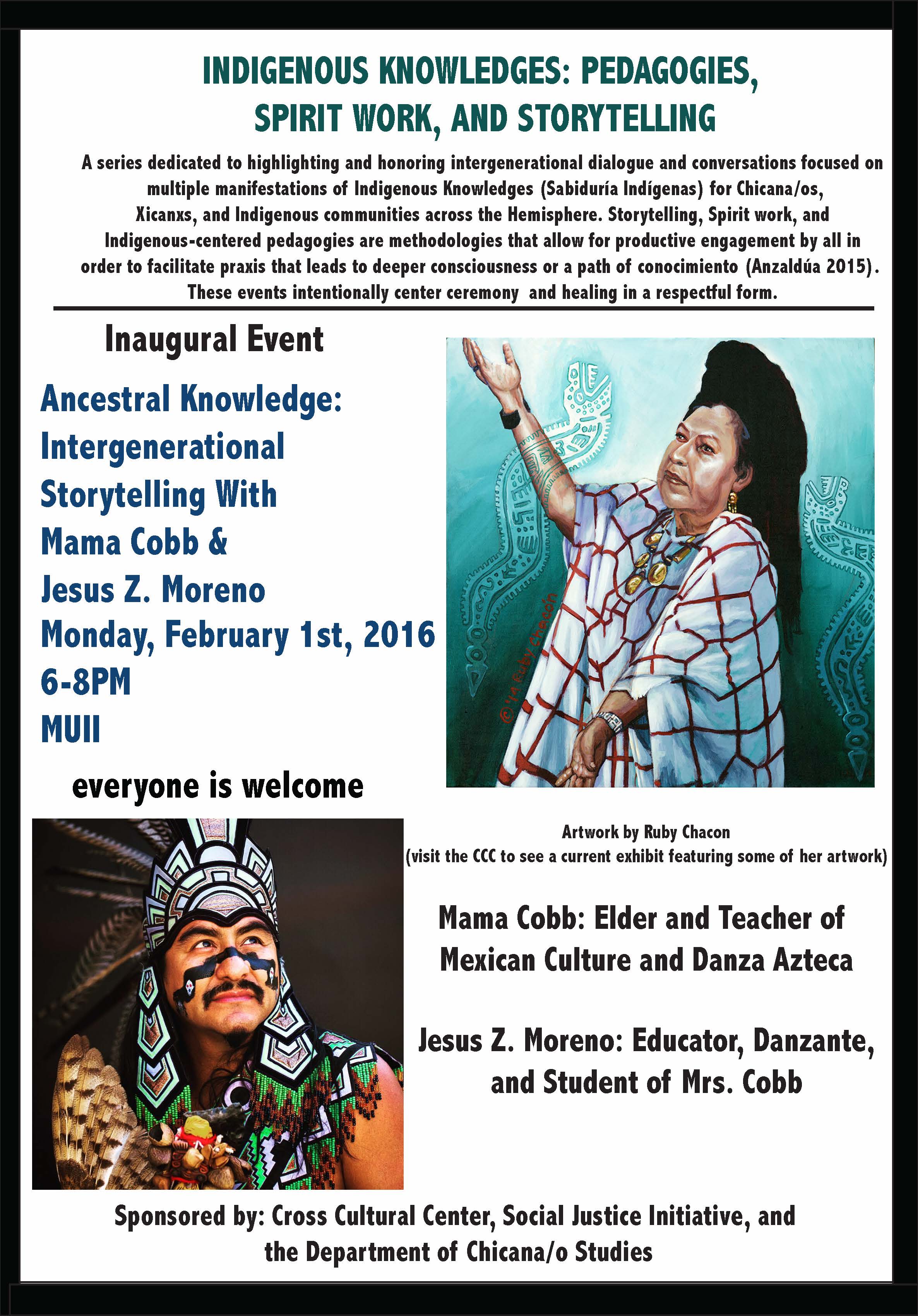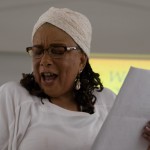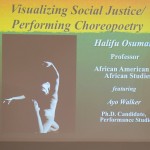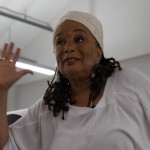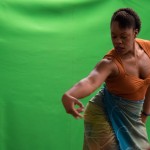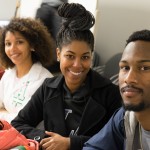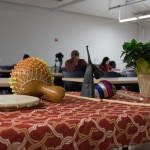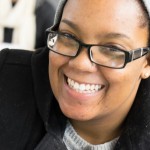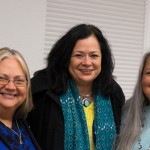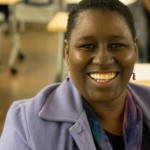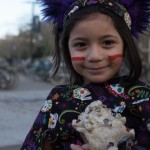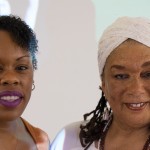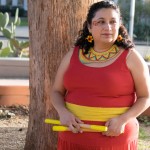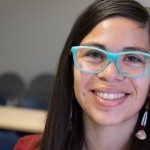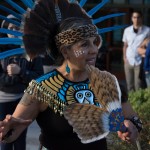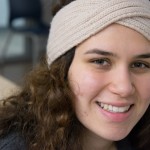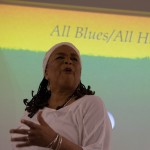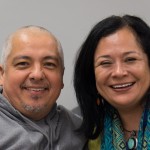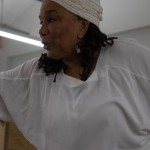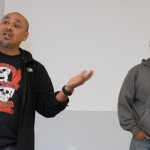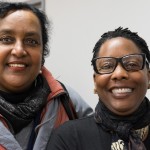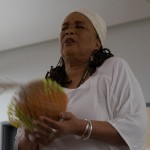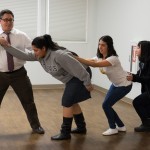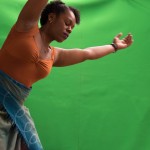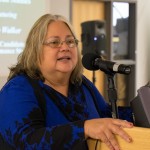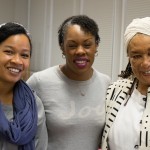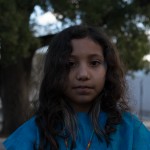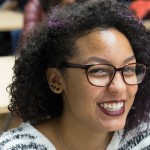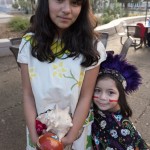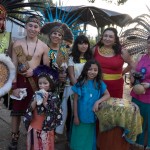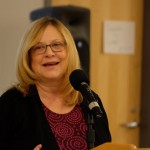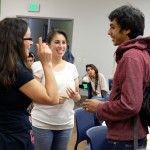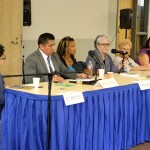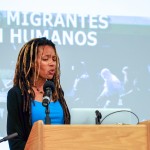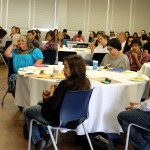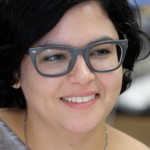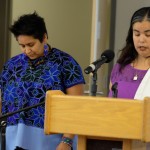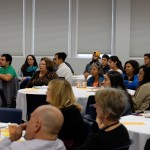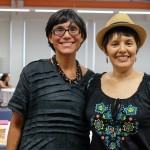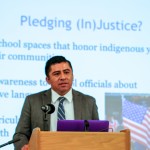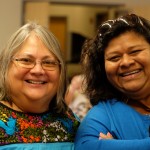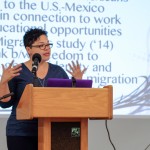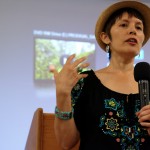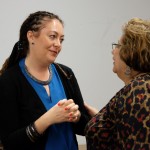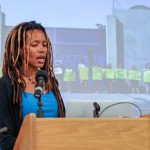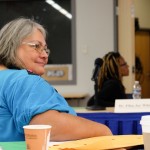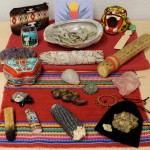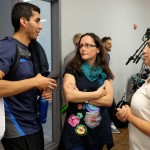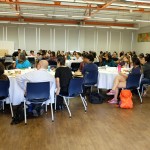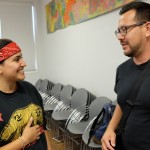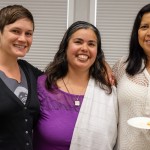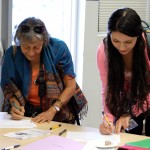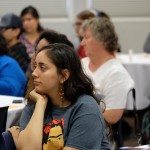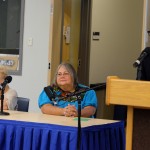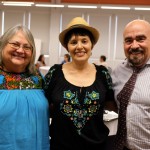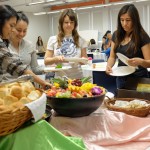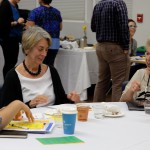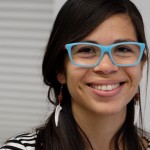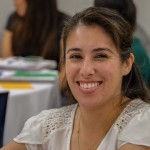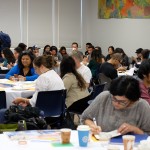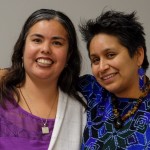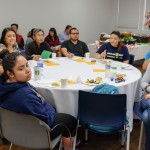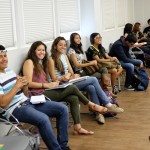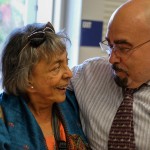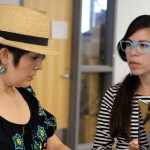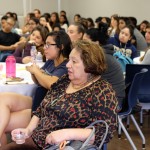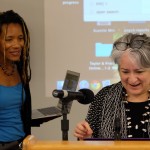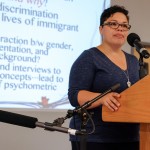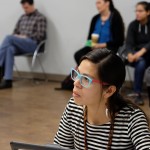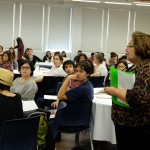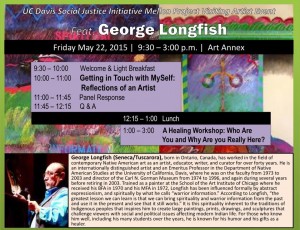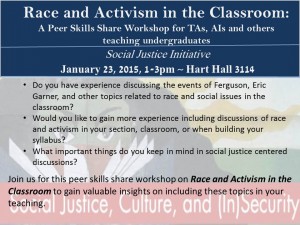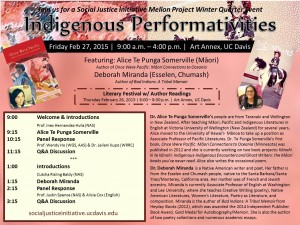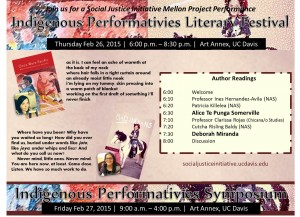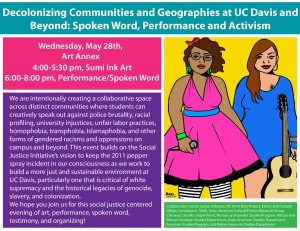Past Events (Archives)
Year 3 (2015-2016)
Spring Quarter 2016
One of the first events of the quarter, which was co-sponsored by the SJI, was a talk by Dr. Brenda Dixon Gottschild titled “‘Racing’ in ‘Place'” Dance Studies and the Academy.” Grounded in the author’s experience as a performance studies/dance studies artist/scholar and anti-racist cultural worker, the Talk was a theoretical and practical intervention, interrogating issues of institutional/cultural hegemony in the dance/research/performance academic complex. Its premise started with the assumption that the current situation of interdisciplinary humanities studies is either in a state of further expansion along the existing models, or is about to experience a major paradigm shift. Given Gottschild’s ongoing concerns about the persistence of racial adversity in every aspect of our lives, the Talk focused on race and its discontents in academia.
Winter Quarter 2016
The final event for the SJI’s Winter Quarter was the “Back-Breaking Justice: Women & Farmworkers of Northern California, the Central Valley and Coast” held on Friday, March 11th, 2016 at the Alpha Gamma Rho Hall (AGR) at the Alumni Center. This powerful event consisted of two panels that discussed the experiences, struggles, and resistance of farmworkers, women and youth throughout California. Two view the morning panel, please click here. For the afternoon panel, please click here. These panels were followed by the opening reception of the art exhibit of artists Dr. Natalia Deeb-Sossa, “Trabajadoras del Campo: A Portrait Series” and Ruby Chacon’s “Generations of Womyn: An Expression of Gratitude.” This exhibit is still on display at the UC Davis Cross Cultural Center, located in the Student Community Center. It will be on display until April 29, 2016. Please visit the art exhibit to experience and learn more about the artists and the womyn they choose to honor in their artwork!
This event was recorded. If you missed it and wish to listen to the panel discussions, please follow these two links:
- Morning panel: https://video.ucdavis.edu/media/t/0_8ii72d7g
- Afternoon panel: https://video.ucdavis.edu/media/t/0_lptwfmxa
During this Winter Quarter we have launched a series titled “Indigenous Knowledges: Pedagogies, Spirit Work, and Storytelling.” We have been blessed by the visit and presentations of many empowering and knowledgable Maestros (teachers). This series is meant to highlight and honor intergenerational dialogue focused on manifestations of Indigenous Knowledges. We have one event left for this series, for more information see our “Events” page. Below you can see the flyers of the events that encompassed this series so far.
February 29th-March 1st, 2016
Red Medicine: Pláticas con Patrisia Gonzales on Indigenous Healing and Traditional Medicine Ways
Dates: Mon., Feb. 29 – March 1st, 2016
Mon., Feb. 29, 7-8:30pm — Evening Keynote Lecture, “The Unseen Realms in Indigenous Healing Systems” (Memorial Union II)
Dr. Patrisia Gonzales will discuss the intangible realms that may operate in traditional Indigenous medicine ways. Animating powers may correspond with, or emerge through, sacred forms, and Indigenous knowledge (IK) structures, or they may be hidden in plain sight or become present at particular alignments of time and place. The unseen goes beyond Thought as Creation and includes experiencing IK and accepting unbounded knowing.
Tues., March 1 – Pláticas con Patrisia Gonzales: Community Roundtables (Hart Hall 3201)
10-11:30am – Indigenous Pedagogies: Teaching Traditional Indigenous Knowledges: Dialogue with educators who see the classroom/teaching as a form of ceremony
Patricia Quijada, Facilitator, Associate Professor, School of Education
Dani Ahuicapahtzin Cornejo, Ph.D. Student, Native American Studies
Melissa Moreno, Professor of Ethnic Studies, Woodland Community College
Sandra Pacheco, Associate Professor of Interdisciplinary Studies at CIIS
Rafael Vasquez, Visiting Assistant Professor, Social Justice Initiative
1-2:30pm – Community Plática: Indigenous Medicine and Traditional Medicine Ways: Dialogue with students and community on Indigenous medicine and traditional ways
Susy Zepeda, Facilitator, Assistant Professor, Chicana/o Studies
Maria Salazar, Undergraduate, Chicana/o Studies & Psychology
Vanessa Segundo, Ph.D. Student, School of Education
Valentin Sierra, Undergraduate, Native American Studies
Alberto Valdivia, Ph.D. Student, Geography Graduate Group
BIO: Dr. Patrisia Gonzales (Kickapoo, Comanche, Macehual) descends from three generations of traditional healers. She is the author of Red Medicine: Traditional Indigenous Rites of Birthing and Healing (University of Arizona Press 2012). She teaches courses on Indigenous medicine at the University of Arizona, where she is an Associate Professor in the Department of Mexican American Studies and the Native American Research and Training Center. As a carrier of traditional medicine ways and a lineage which she inherited from her great-grandfather, she has worked with pregnant women and birthing, cancer patients, as well as trauma survivors. She is a former W. K. Kellogg fellow and has won numerous awards for her writings.
Event #3 of INDIGENOUS KNOWLEDGES: PEDAGOGIES, SPIRIT WORK, AND STORYTELLING Series
A series dedicated to highlighting and honoring intergenerational dialogue and conversations focused on multiple manifestations of Indigenous Knowledges (Sabiduría Indígenas) for Chicana/os, Xicanxs, and Indigenous communities across the Hemisphere. Storytelling, Spirit work, and Indigenous-centered pedagogies are methodologies that allow for productive engagement by all in order to facilitate praxis that leads to deeper consciousness or a path of conocimiento (Anzaldúa 2015). These events intentionally center ceremony and healing in a respectful form.
All events are free and open to the public.
Co-sponsored by: UCD Chicana/o Studies Department , Native American Studies UC Davis , UC Davis Hemispheric Institute on the Americas, UC Davis School of Education, UC Davis Social Justice initiative, and UC Davis American Studies Program.
Photos courtesy of Dr. Natalia Deeb-Sossa from the UC Davis Chicano and Chicana Studies Department.
February 8th, 2016
February 1st, 2016
The momentum of October’s SJI Launch Event has been carried over into our Winter Quarter events. On January 15, 2016, the SJI hosted three amazing presentations that advocated for the visualization, performativity, and the embodiment of Social Justice. We began with the powerful presentation by Professor of African American & African Studies, Dr. Halifu Osumare, which featured Ayo Walker, a graduate student in Performance Studies. They both shared dynamic and healing poems (featured below).
The day continued with a workshop that provided the participants with the history and trajectory of El Teatro Campesino. Ruben Gonzalez, accompanied by his director, Kinan Valdez (the son of Luis Valdez), facilitated a teatro exercise.
To complete the day, Kalpulli Xitlalli, a Danza Azteca ceremonial dance circle, ceremonially blessed the opening of the art exhibit of two amazing artists: Ruby Chacon and Dr. Natalia Deeb-Sossa. Both art exhibits feature womyn Azteca dancers. The exhibits continue to be on display at the UC Davis Cross-Cultural Center. You are all welcome to visit the exhibits.
We are honored to share one of Dr. Osumare’s poems:

We also have the privilege of featuring Ayo Walker’s poem:
We are also pleased to share the beautiful photography of Dr. Natalia Deeb-Sossa:
Fall Quarter 2015: Migration, Citizenship, & (In)Justice
PLEASE NOTE: In case you missed this wonderful and powerful event, we did film it. Click here to view the event.

We also had a wonderful photographer, Dr. Natalia Deeb-Sossa (Chicana/o Studies), during the event and we are pleased to share some of these photos with you.
Spring Quarter 2015: Indigenous Knowledges
May 15, 2015
10:00 AM – 4:00 PM
Art Annex, UC Davis
Indigenous Languages: Presence, Practice, and Sustainable Futures
“Epistemological and Healing Properties of Indigenous Languages” by Dr. Beth Piatote
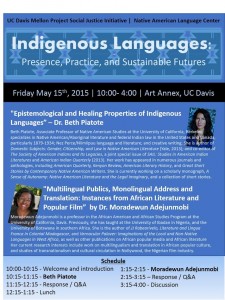 “Multilingual Publics, Monolingual Address and Translation: Instances from African Literature and Popular Film” by Dr. Moradewun Adejunmobi
“Multilingual Publics, Monolingual Address and Translation: Instances from African Literature and Popular Film” by Dr. Moradewun Adejunmobi
May 21, 2015
Fem Sem Dinner
6:00 p.m. – 8:30p.m.Art Annex, UC Davis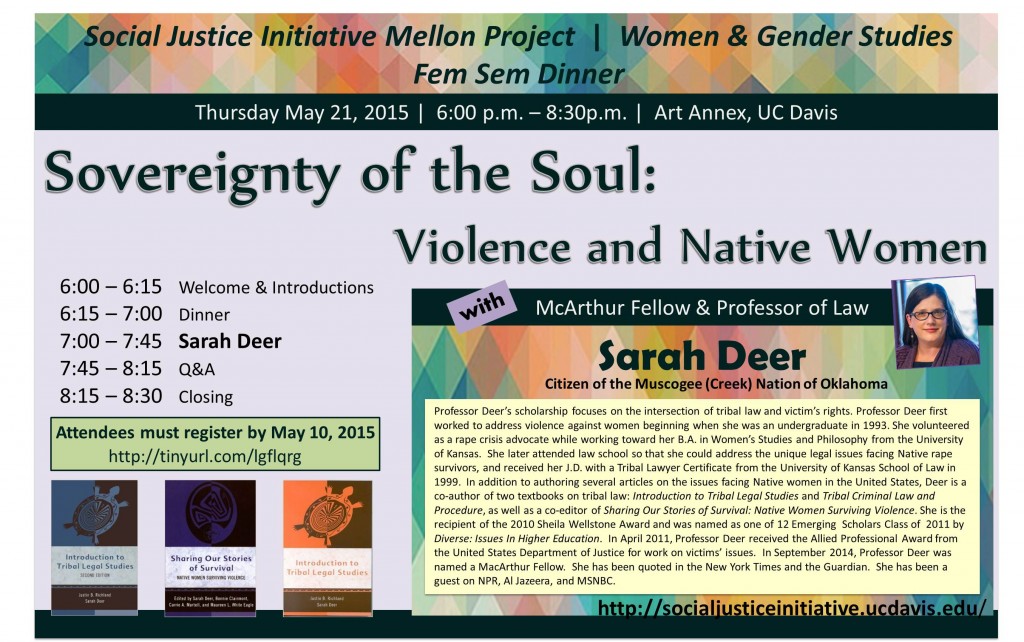
WINTER QUARTER 2015: Indigenous Performativities
January 23, 2015
February 13, 2015
The Revolution Can Be Funded: Fundraising Strategies for Social Justice in the Americas
10:00 a.m. – 12:00 p.m.
Location TBD
w/ Professor Liza Grandia
February 26 – 27, 2015
Indigenous Performativities Panel & Literary Festival
w/ Alice TePunga Sommerville & Deborah Miranda
6:00 p.m. – 8:00 p.m. (February 26)
8:30 a.m. – 4:00 p.m. (February 27)
Art Annex
UC Davis
March 17, 2015
2120 Hart Hall
The Mellon Social Justice Initiative
presentations by graduate students in NAS 202 Special Topics
Narratives of Indigeneity
9:00-9:30: Breakfast (light), coffee, fruit, pastries
9:30-11 PANEL 1
Rebecca Hogue, English
I Kū Mau Mau (Stand Together): Pacific Islander Solidarity in the March for Real Climate Leadership
Kaitlin Reed, Native American Studies
We are Water Carriers: Connections Between Women and Nature in Native American Women’s Literature
Jessa Rae Growing Thunder, Native American Studies
Path of Healing: An Examination of Nation State Responses to Violence Against Indigenous Women
Respondent: TBA
BREAK 11:00-11:15
11:15-12:45 PANEL 2
Cuauhtemoc Lule, Native American Studies
“The Colors of the Aniam: Yaqui Cosmologies and the Artwork of Mario Martinez”
Rachael Nez, Native American Studies
Kaibah: Hearing the LP Artist of the 60s
Spencer Mann, Native American Studies
Surviving Twins: Exploring the Contours of Indigenous Borderlands in Louis Owens’s Dark River
Respondent: Dr. Alicia Cox, UC President’s Postdoctoral Fellow, English
LUNCH 12:45-1:30
1:30-3:00 PANEL 3
SimHayKin Jack, Native American Studies
All of Me: The Story of a Native Family
Nicholas Ammar, Anthropology
Looking for Home in all the Work Places: An Exploration of Labor and Identity Among Palestinian Immigrants in the Bay Area
D Dayton, Comparative Literature
Centering the Dissertation: The Formula of the Idiot and the Ritual in Alai’s Red Poppies
Respondent: Dr. Doris Maldonado, UC President’s Postdoctoral Fellow, Native American Studies
FALL QUARTER 2014: Global Indigenous Identities & Alliances
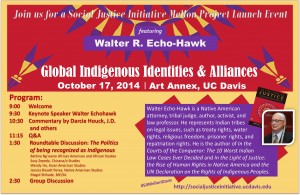 October 17, 2014
October 17, 2014
Social Justice Initiative Mellon Project Launch Event: Global Indigenous Identities and Alliances
Keynote Speaker: Walter Echo-Hawk
Walter Echo-Hawk (Pawnee) is a Native American speaker, author, and attorney. Throughout his distinguished legal career, he has worked to protect the legal, political, property, cultural, and human rights of Indian tribes and Native peoples. An articulate and versed indigenous rights activist, Echo-Hawk delivers keynote speeches and lectures on a wide variety of indigenous topics, involving Native arts and cultures, indigenous history, federal Indian law, religious freedom, environmental protection, Native American cosmology, and human rights. He is the author of In the Courts of the Conqueror: The 10 Worst Indian Law Cases Ever Decided and In The Light of Justice: the Rise of Human Rights in Native America and the UN Declaration and the Rights of Indigenous Peoples. http://www.walterechohawk.com/
LINK TO VIDEO of Walter Echohawk’s Talk: http://webcast.ucdavis.edu/llnd/692df500
October 23, 2014
Author Molly McGlennen Presentation/Book Signing and Graduate Student Workshop
Molly McGlennen was born and raised in Minneapolis, Minnesota and is of Anishinaabe and European descent. Currently, she is an Associate Professor of English and Native American Studies at Vassar College. She holds a PhD in Native American Studies from University of California, Davis and an MFA in Creative Writing from Mills College. Her creative writing and scholarship have been published widely. She is the author of a collection of poetry Fried Fish and Flour Biscuits, published by Salt’s award-winning “Earthworks Series” of Indigenous writers, and a critical monograph Creative Alliances: The Transnational Designs of Indigenous Women’s Poetry from University of Oklahoma Press.
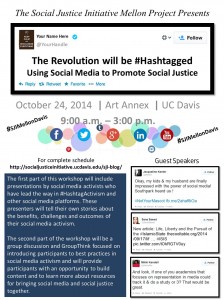 October 24, 2014
October 24, 2014
The Revolution Will Be #Hashtagged: Using Social Media to Promote Social Justice
w/ Jacqueline Keeler, Mikki Kendall, Sanna Saeed
The growth of popular formats in social media are being used to claim space, and represent social justice movements that might not otherwise be a part of the national popular discourse. There have been a number of examples over the past few years of social justice movements that use social media to organize, and call attention to activist movements throughout the world. Now that social media has launched global campaigns and supported social justice activism, there is a growing intellectual discourse developing about the best ways to harness the momentum of social media to engage and mobilize people and movements. The first part of this workshop will include presentations by social media activists who have lead the way in #HashtagActivism and other social media platforms. These presenters will tell their own stories about the benefits, challenges and outcomes of their social media activism. Their presentations will consider: What is the impact (fallout and support) of engaging in social media activism? & What are some best practices and/or tips for using social media as a tool of social justice? The second part of the workshop will be a group discussion and GroupThink focused on introducing participants to best practices in social media activism and will provide participants with an opportunity to build content and to learn more about resources for bringing social media and social justice together.
Jacqueline Keeler, Eradicating Offensive Native Mascotry:Jacqueline Keeler is a Navajo/Yankton Dakota Sioux writer living in Portland, Oregon and is a founder of EONM.org (Eradicating Offensive Native Mascotry). She has been published in Salon.com, Indian Country Today and the Nation. She is finishing her first novel “Leaving the Glittering World” set in the shadow of the Hanford Nuclear Reservation in Washington State during the discovery of Kennewick Man.
Sanna Saeed, writer: Sana Saeed is a writer on media critique and minority representation in popular media. She is a producer for AJ+, the new digital division of the Al Jazeera Media Network, based in San Francisco. Her work has appeared in Al Jazeera English, Salon, Guardian, ReadWrite, Huffington Post, Policy Mic, The Alternatives Journal, Al Akhbar English, The Islamic Monthly and Buzzfeed. She tweets at @SanaSaeed.
Mikki Kendall, Hoodfeminism.com: Mikki Kendall a writer and occasional feminist divides her time between two careers, a family, and brunch. The last is necessary to provide the energy she needs for everything else on her to-do list. Her writing can be found at XO Jane, Salon, NPR’s Code Switch, Guardian, and a host of other places willing to let her rant. She commits occasional acts of fiction largely focusing on black people in every situation under the sun, and a few under undefined celestial bodies. She can often be found on Twitter engaging in the highest quality shenanigans as @karnythia.
LINK TO VIDEO of Presentations: http://webcast.ucdavis.edu/llnd/3567015b
December 8, 2014
Roundtable Discussion: Settler Colonialism in Palestine in Comparative Perspective
w/ Professor Magid Shihade & MSA 181C: Topics in Arab Studies Seminar Students
This roundtable is an exploration of the question of settler colonialism in Palestine using a comparative framework to discuss other settler colonial cases in an attempt to study the rationales, dynamics, structures, and impact of settler colonialism. A historical examination of examples such as the United States, Australia, and Canada as presumably completed projects of settler colonialism will allow for a critical view and a deeper understanding of processes in Palestine-Israel, and the possibilities for the future of the peoples there.
December 12, 2014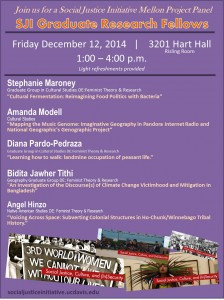
SJI Graduate Research Fellows Presentations
On Friday December 12, 2014 the Social Justice Initiative Graduate Research Fellows presented on the research they completed because of funding from the SJI. We hope to continue these fellowships this year and look forward to supporting other graduate student work.
Stephanie Maroney
Graduate Group in Cultural Studies DE:Feminist Theory & Research
“Cultural Fermentation: Reimagining Food Politics with Bacteria“
Amanda Modell
Cultural Studies DE: Feminist Theory & Research
“Mapping the Music Genome: Imaginative Geography in Pandora Internet Radio and National Geographic’s Genographic Project“
Diana Pardo-Pedraza
Graduate Group in Cultural Studies DE:Feminist Theory & Research
“Learning how to walk: landmine occupation of peasant life.”
Bidita Jawher Tithi
Geography Graduate Group DE: Feminist Theory & Research
“An Investigation of the Discourse(s) of Climate Change Victimhood and Mitigation in Bangladesh”
Angel Hinzo
Native American Studies DE: Feminist Theory & Research
“Voicing Across Space: Subverting Colonial Structures in Ho-Chunk/Winnebago Tribal History.
FALL QUARTER 2013
Friday, October 18th, 2013
Social Justice Initiative Mellon Project Launch Event Featuring Professor Andrea Smith
Link to Andrea Smith’s Talk http://webcast.ucdavis.edu/llnd/6bf9b830
Link to DHI coverage: Social Justice Mellon Group Kicks off a Busy Year of Events
http://dhi.ucdavis.edu/?page_id=13401
Friday, November 1st, 2013
Feminist Seminar Featuring: Charlotte Bunch and Margo Okazawa-Rey
view the flyer
Link to DHI coverage: Mellon Social Justice Initiative Engages Issues of Feminism and Activism
http://dhi.ucdavis.edu/?page_id=13557
Friday, December 6th, 2013
WINTER QUARTER 2014
Friday, March 14th — “The Revolution Can Be Funded! Fundraising Strategies for Social Justice in the Americas”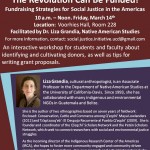
Facilitated by Dr. Liza Grandia, Native American Studies
10 a.m. – Noon
Location: Voorhies Hall, Room 228
An interactive workshop for students and faculty about identifying and cultivating donors, as well as tips for writing grant proposals.
Friday, February 7th — SJI Research Talking Circle, 10-1pm, Hart Hall 2120
Continuing the dialogue of exploring feminist and collaborative methodologies that are rooted in research as justice. This gathering continues the SJI’s vision of creating a space on the UC Davis campus that facilitates interdisciplinary dialogue about decolonized and democratic knowledge building that are accountable to multiple communities.
- What is social justice? What working definitions are useful?
- How do social justice concerns inform your research?
- How can SJI address and support your research?
Friday, February 28th — “Science, Sexuality and (In)Security,”
9am-4pm, Art Annex
Speakers include:
- Sandra Harding (UCLA) Sandra_Harding_Bio
- Lisa Ikemoto (UC Davis) Lisa_Ikemoto_Bio
- Kim TallBear (UT Austin) Kim_Tallbear_Bio
- Elena Gutiérrez (UI Chicago) Elena_Gutierrez_Bio
- Camisha Russell (UC Irvine) Camisha_Russell_Bio
Here is the link to the webcast of the Friday, February 28th SJI program:
http://webcast.ucdavis.edu/llnd/5fe1cab3
______________________________________________________________________
SPRING QUARTER 2014
Decolonizing Communities and Geographies at UC Davis and Beyond:
Spoken Word, Performance and Activism
We are intentionally creating a collaborative space across distinct communities where students can creatively speak out against police brutality, racial pro!ling, university injustices, unfair labor practices, homophobia, transphobia, Islamaphobia, and other forms of gendered racisms and oppressions on campus and beyond. This event builds on the Social Justice Initiative’s vision to keep the 2011 pepper spray incident in our consciousness as we work to build a more just and sustainable environment at UC Davis, particularly one that is critical of white supremacy and the historical legacies of genocide, slavery, and colonization.
We hope you join us for this social justice centered evening of art, performance, spoken word, testimony, and organizing!
Art Annex, UC Davis
6:00-8:00 pm, Performance/Spoken Word
Friday, May 16th “Transnational Challenges to Global Empire: Cultivating Ethical Feminist Praxis”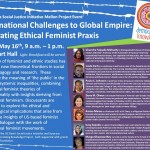
3201 Hart Hall, 9 a.m. – 1 p.m.
Light breakfast will be served
The growth of feminist and ethnic studies has opened up new theoretical frontiers in social justice pedagogy and research. These interrogate the meaning of ‘the public’ in the context of systemic inequalities, combining postcolonial feminist theories of intersectionality with insights deriving from transnational feminism. Discussants are challenged to explore the ethical and methodological implications that arise from bringing the insights of US-based feminist work into dialogue with the work of transnational feminist movements.
Speakers include:
- Chandra Talpade Mohanty Bio
- Linda Carty Bio
- Paula C. Johnson Bio
- Dana M. Olwan Bio
- Amina Mama Bio
- Susy Zepeda Bio
- Margo Okazawa-Rey Bio
AAS 298B: Directed Group Study in African Studies: Racialization and Publicness Co-taught by Professors Moradewun Adejunmobi, Bruce Haynes, Halifu Osumare, Amina Mama, Elisa White, Bettina Ng’weno and Wale Adebanwi. AAS 298 Flyer
SPRING 2014
2215 Hart Hall
Fridays: 10 am-12.50pm
This seminar reconsiders the fundamental relationship between racialization and publicness in modern times. Against the backdrop of theoretical, ethnographic, visual, aural, embodied and print frameworks and/or traditions, the seminar engages with how the tensions, contradictions, challenges and opportunities of publicness (re)configure and (re)determine racialization of people of African descent around the world and how different states, societies, institutions, structures and agents enact, and react to, such racialization in and through language & literature, music, politics, social formations, gender, territoriality, (im)migration, etc. The seminar series is taught by faculty from different disciplines whose research and teaching are informed by interdisciplinarity.
For further information: anadebanwi@ucdavis.edu
UC Davis: Angela Davis & Student Panel http://webcast.ucdavis.edu/llnd/cb6493b
